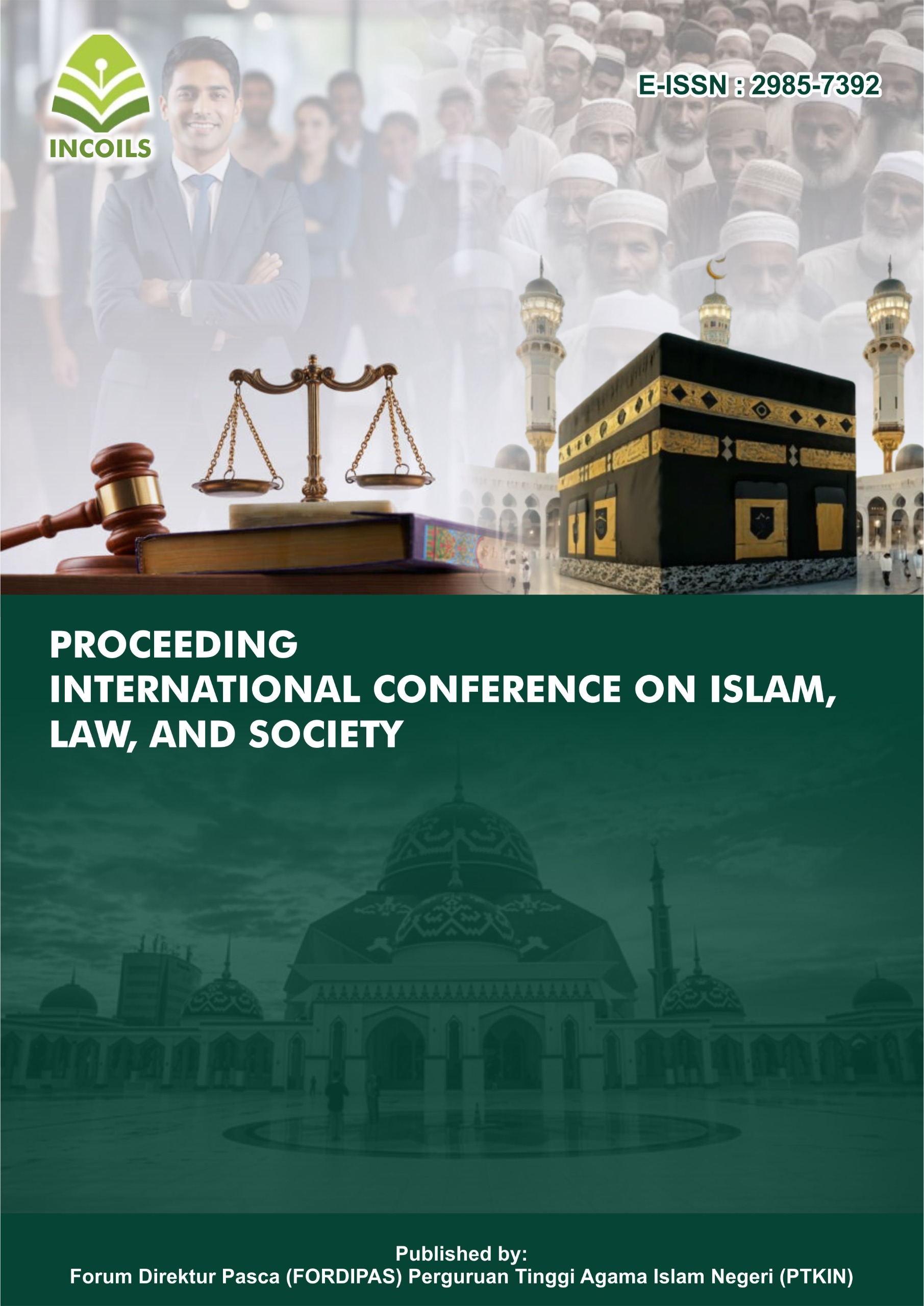Al-Qur'an Rebuttal Against Childfree Lifestyle
DOI:
https://doi.org/10.70062/incoils.v2i1.57Keywords:
Childfree Lifestyle, The Qur'an's Rebuttal, InterpretationAbstract
The phenomenon of married couples who decide not to have children, known as “ childfree” since 2021 until now, has become increasingly widespread. This movement was pioneered by a public figure who has influence in society ( influencer) , including a YouTuber named Gita Savitri and Paul Andre. They both decided not to have children on the grounds that having children or not is a life choice and children are a big responsibility. From the recognition of their status as public figures in society, the term childfree has begun to be widely discussed with various responses from the public, especially in Indonesia. In this study using qualitative methods with interpretation approach. Data collection was carried out using library research through two sources : first, observation data from observations of verses of the Koran related to this discussion either explicitly or implicitly about childfree and the hadith of the Prophet SAW. In addition to the verses of the Qur'an and hadith, supporting or secondary data were obtained from observation of books, journal articles, news events and other sources related to the theme of this study. Because this research emphasizes the aspect of interpretation, several interpretation books. One of the purposes of Allah's marriage mentioned in the Qur'an is to multiply offspring. As explained in the letter Al-A'raf verse 86. This is one of the arguments stating the rejection of childfree behavior, the Qur'an does not justify this. Moreover, making childfree from the start a lifestyle without any logical considerations and reasons that can be accepted by religion. Childfree may be taken if there are reasons that oblige a person not to have children, for example due to a serious illness, a disease which if she becomes pregnant will be life threatening, while still making medical recommendations a prior consideration, or someone who has been destined by Allah to be unable to have children.
References
Az-Zuhaili, W. (2013). Tafsir Al-Munir Akidah, Syariah, Manhaj (1st ed.). Gema Insani.
Dasri. (2016). Penundaan Kehamilan Dengan Memakai Alat Kontrasepsi Bagi Pengantin Baru Dalam Tinjauan Hukum Islam (Studi Di Kecamatan Selebar Kota Bengkulu. Qiyas, 1(1).
Fadhilah, E. (2021). CHILDFREE DALAM PERSPEKTIF ISLAM. Syari;Ah & Hukum, 3, 71–80.
Haganata, K., Arrasy, F., & Masruroh, S. A. (2022). KONTROVERSI CHILDFREE DI TENGAH ALASAN AGAMA ,. Prosiding Konferensi Integrasi Interkoneksi Islam Dan Sains, 4, 309–320.
Mardiyan, R., & Ratna, E. (2016). Kepuasan Pernikahan Pada Pasangan Yang Belum Memiliki Keturunan. Empati, 5(3).
Nursaniyah, F. (2022). Bukan Karena Ingin Punya Anak, Ternyata Ini Alasan Gita Savitri dan Paul Andre Menikah”. Kompas. ttps://www.kompas.com/hype/read/2021/08/16/175912066/bukan-karena-ingin-punya-%0Aanak-ternyata-ini-alasan-gita-savitri-dan-paul?page=all
Patnani, M., & Takwin, B. (2021). Bahagia Tanpa Anak? Arti Penting Anak Bagi Involuntary Childless. Ilmiah Psikologi Terapan, 09(01).
Tunggono, V. (2021). Childfree & Happy. EA Books.
Verury, V. (2021). Orangtua Alami Gangguan Bipolar, Bisakah Menurun Ke Anak? Haldoc. https://www.halodoc.com/artikel/orangtua-alami-gangguan-bipolar-bisakah-menurun-ke-anak /
Watling, J., & Zachary. (2021). Revalence and Characteristics Of Childfree Adults In Michigan (USA): Vol. June (2nd ed.). Plos One.
Downloads
Published
How to Cite
Issue
Section
License

This work is licensed under a Creative Commons Attribution-ShareAlike 4.0 International License.







